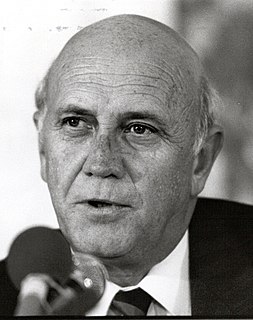A Quote by Zbigniew Brzezinski
We should be therefore supporting a larger Europe, and in so doing we should strive to expand the zone of peace and prosperity in the world which is the necessary foundation for a stable international system in which our leadership could be fruitfully exercised.
Related Quotes
The United Nations remains the sole universal international organisation designed to maintain global peace. And in this sense it has no alternative today. It is also apparent that it should adapt to the ever-changing world, which we discuss all the time: how it should evolve and at what rate, which components should undergo qualitative changes. Of course, I will have to or rather should use this international platform to explain Russia's vision of today's international relations, as well as the future of this organisation and the global community.
The Americans are trying to expand their influence in the world, particularly in Europe. They are defending their own interests, not ours. I am in favor of a multi-polar world in which France once again takes its position as the leader of non-aligned states, not with the US, not with Russia and not with Germany. One should strive to be neither slave nor master.
It goes without saying that the stability of the Middle East is the foundation for peace and prosperity for the world, and of course for Japan. Should we leave terrorism or weapons of mass destruction to spread in this region, the loss imparted upon the international community would be immeasurable.
Believing that the happiness of mankind is best promoted by the useful pursuits of peace, that on these alone a stable prosperity can be founded, that the evils of war are great in their endurance, and have a long reckoning for ages to come, I have used my best endeavors to keep our country uncommitted in the troubles which afflict Europe, and which assail us on every side.
We're too passive. We're feeding on too much rubbish and I think we should strive to just shrug away that comfort zone and be able to get the most of each one of us, which means restructuring the way we deal with time and the priorities we have in life, so being what we want to be I think should be something that we should keep in mind.
The Universal Declaration of Human Rights recognizes that 'if man is not to be compelled to have recourse, as a last resort, to rebellion against tyranny and oppression', human rights should be protected by the rule of law. That just laws which uphold human rights are the necessary foundation of peace and security would be denied only by closed minds which interpret peace as the silence of all opposition and security as the assurance of their own power.
We [with Shindzo Abe] should understand that the results of that terrible tragedy of the 20th century, namely World War II, are enshrined in corresponding international documents, and finding a way to settle all disputes without destroying the entire foundation of international law that evolved as a result of World War II is a highly delicate task. Therefore, I would like to reiterate that we cannot second-guess the course, let alone the outcome of our negotiations.
































